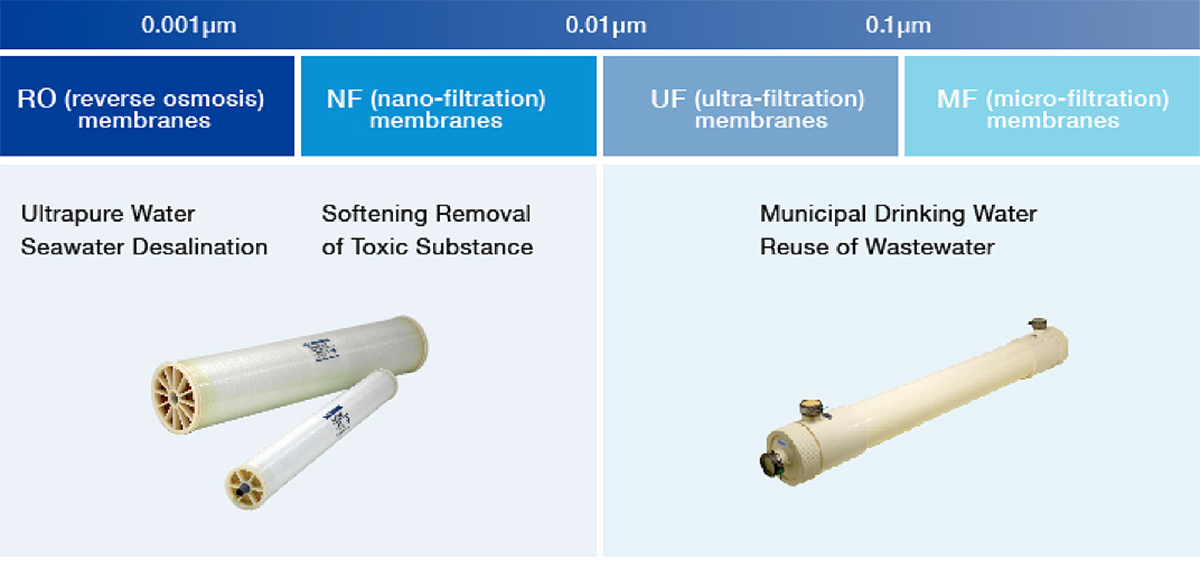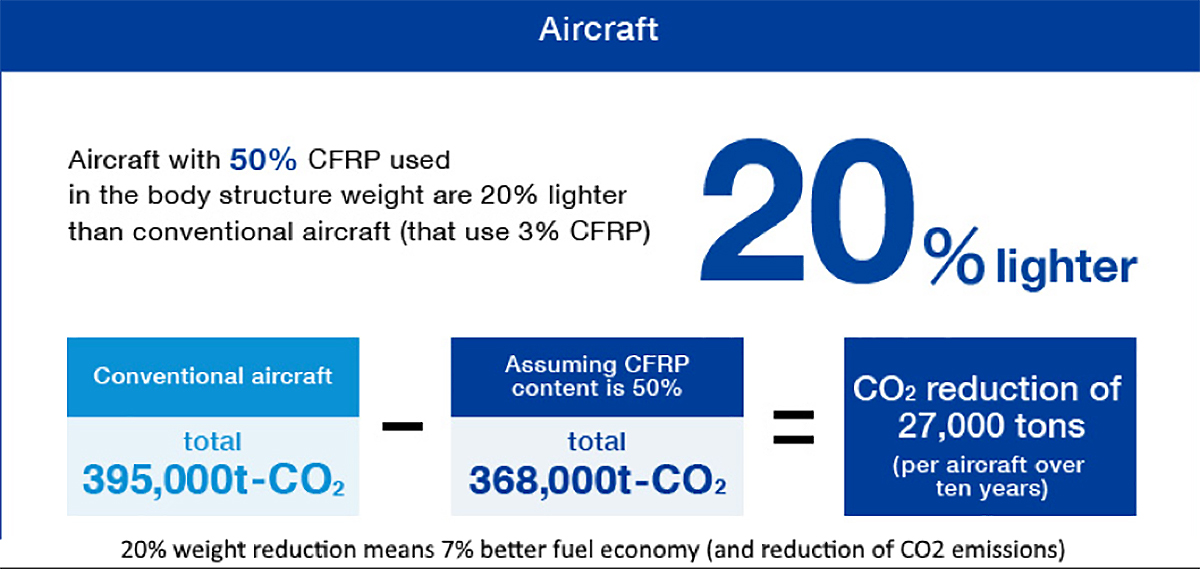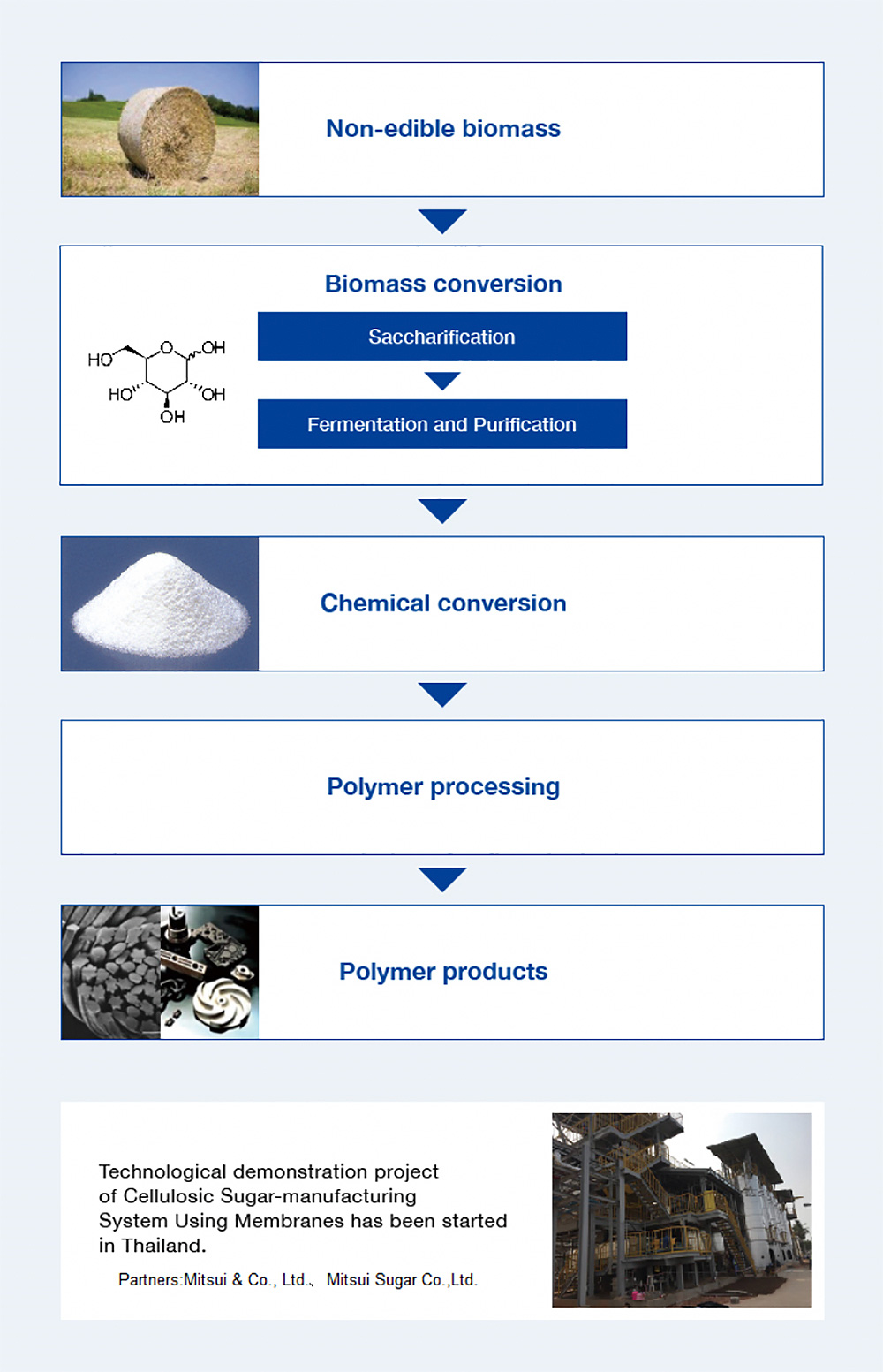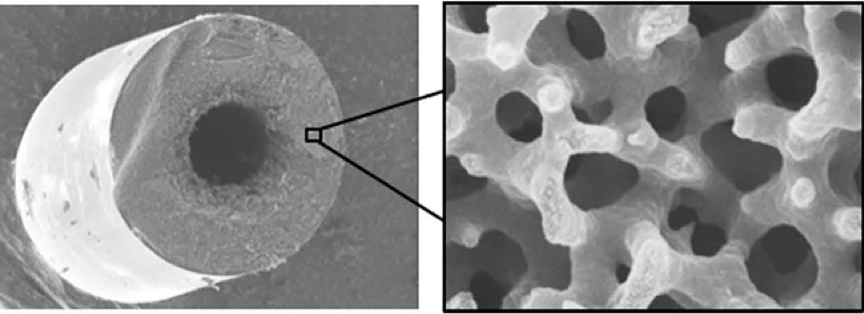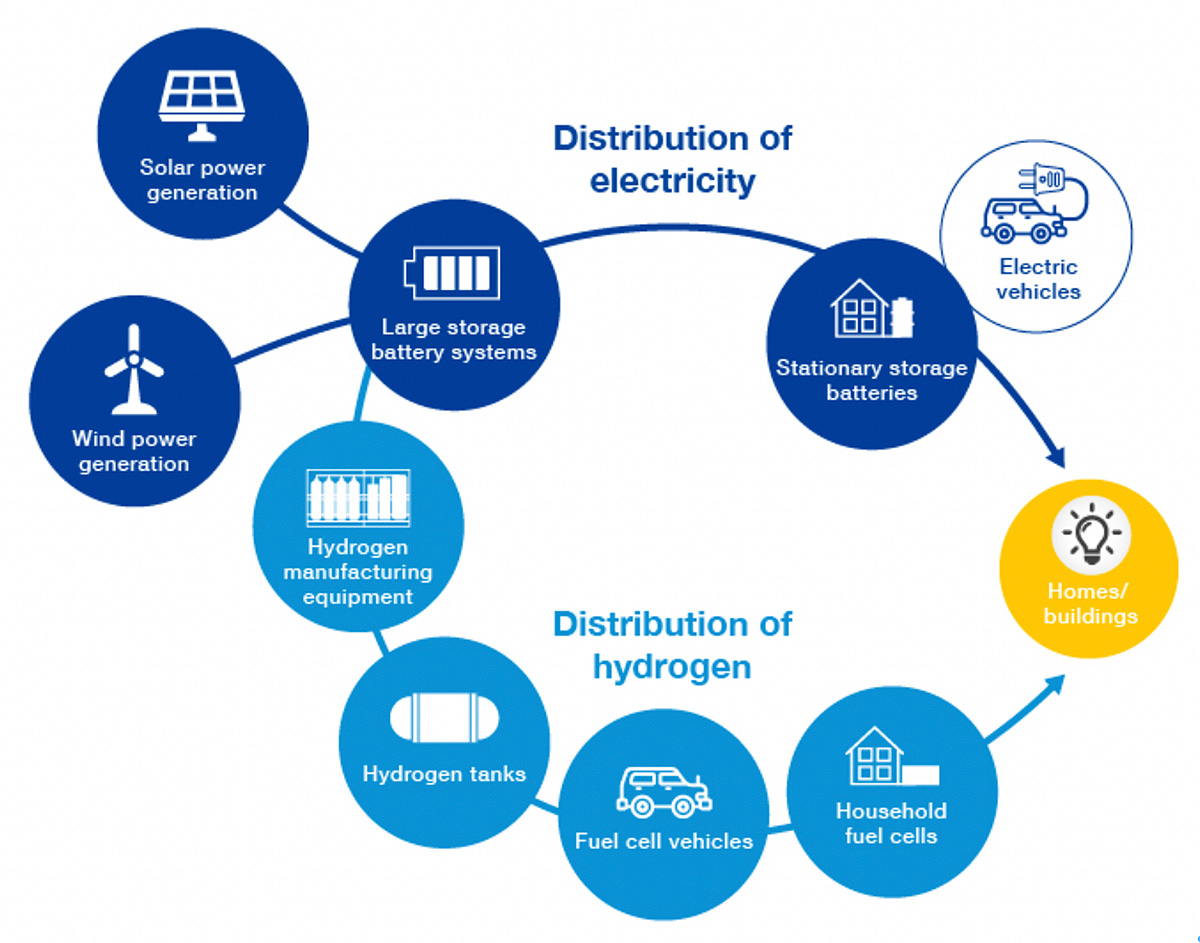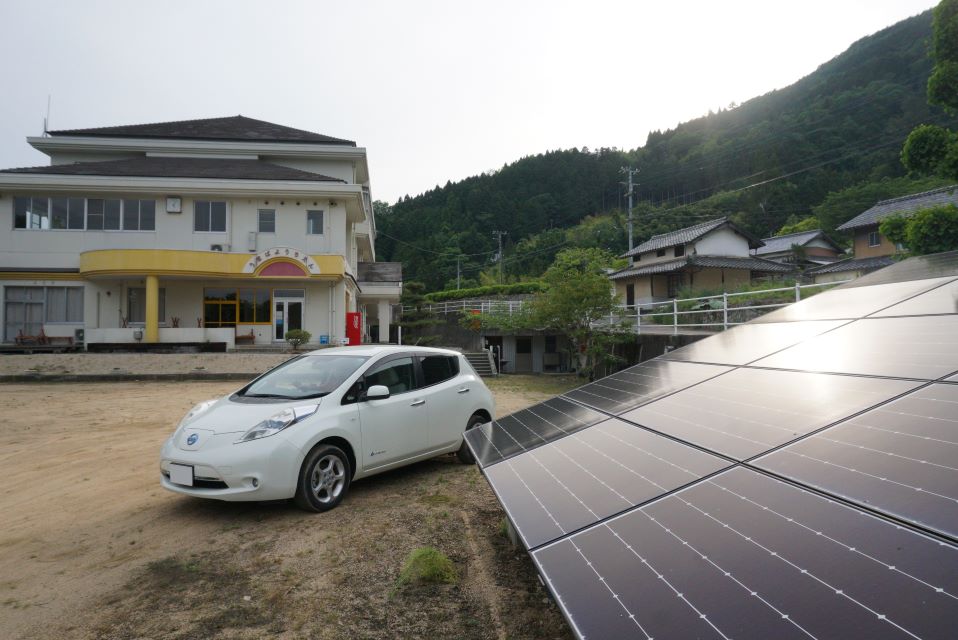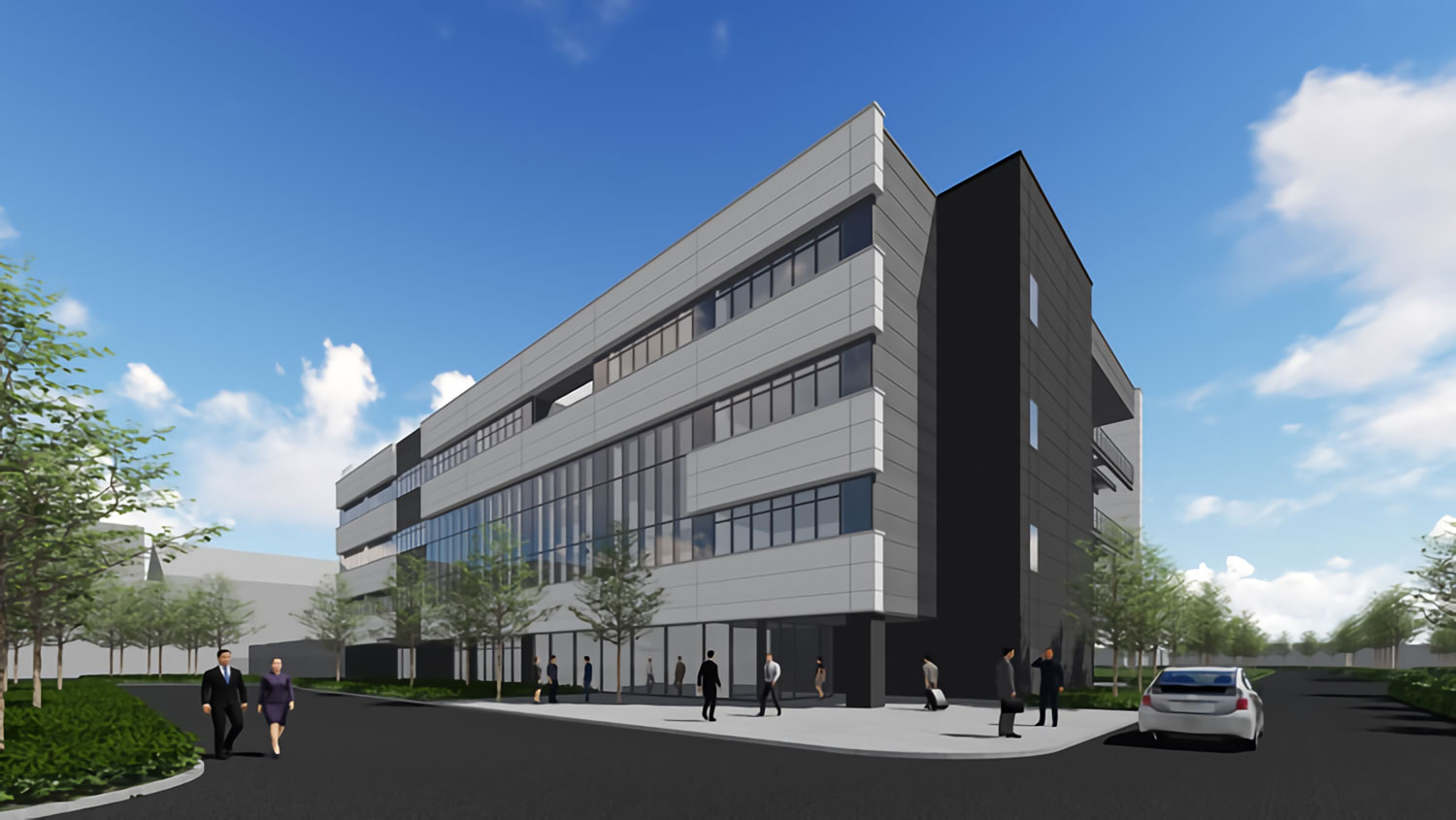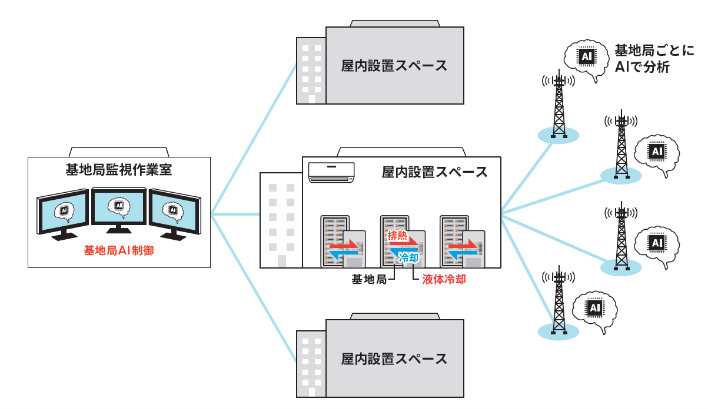Helping to reduce CO2 emissions through seawater desalination using RO membranes
Toray Industries, Inc.
Outline
To help solve water shortage and pollution problems around the world, Toray has internally developed a wide range of high-performance membranes, utilizing the company's expertise in organic synthetic chemistry, polymer chemistry, and nanotechnology. Toray also offers systems globally for customers to secure sustainable water sources.
Reverse osmosis (RO) membranes are used to produce drinking water from seawater by separating out salt and impurities. Seawater can be desalinated through a process of forcing H2O from a region of high solute concentration (seawater) through an RO membrane to a region of low solute concentration (drinking water) by applying pressure in excess of the osmotic pressure.
Compared with the evaporation method of desalination that requires heating, seawater desalination using an RO membrane can reduce CO2 emissions by 172.57 million tons. This is the estimated CO2 emissions avoidance from anticipated seawater desalination plant construction worldwide in 2020 (*).
*P28 Contributing to Avoided Emissions through the Global Value Chain
https://www.keidanren.or.jp/en/policy/vape/gvc2018.pdf
Toray will help reduce CO2 emissions by expanding the areas where seawater desalination based on RO membranes can be used, while increasing the supply system for RO membranes, and developing even better energy-saving technologies.
Supplementary information
Toray Group Sustainability Vision
https://www.toray.com/sustainability/pdf/sustainability_e.pdf
Other Innovation Challenges
Better Energy Efficiency with Carbon Fiber Composite Materials
Toray Industries, Inc.
Gas separation using porous carbon fibers with continuous pore structure
Toray Industries, Inc.
Helping to realize a clean energy society with hydrogen utilization technology
Toray Industries, Inc.
Similar Innovation Challenges
Accelarating the penetration of renewable energy resources with “Open Energy System”
Sony Group Corporation
Achieving net-zero carbon emissions from plant factories using full artificial lighting
Taikisha Ltd.
Advanced technology for buildings providing energy-saving and comfortable indoor environment (under Net Zero Energy condition)
Mitsubishi Electric Corporation
AI control reduces base station power consumption by up to 50%
KDDI CORPORATION



